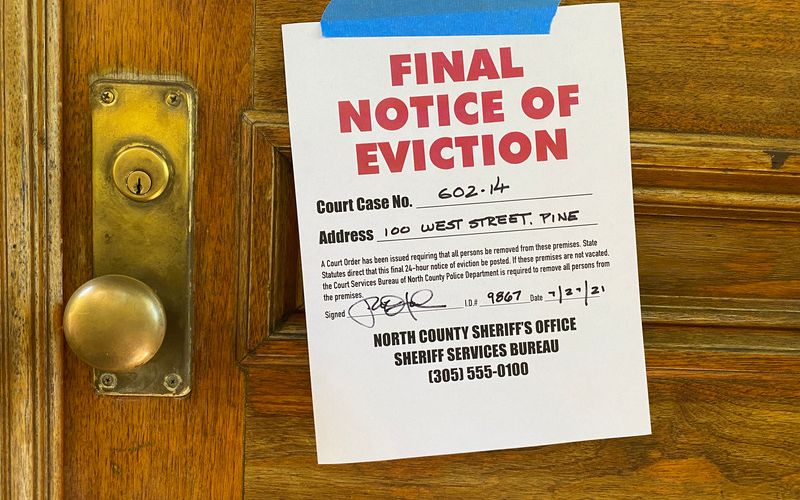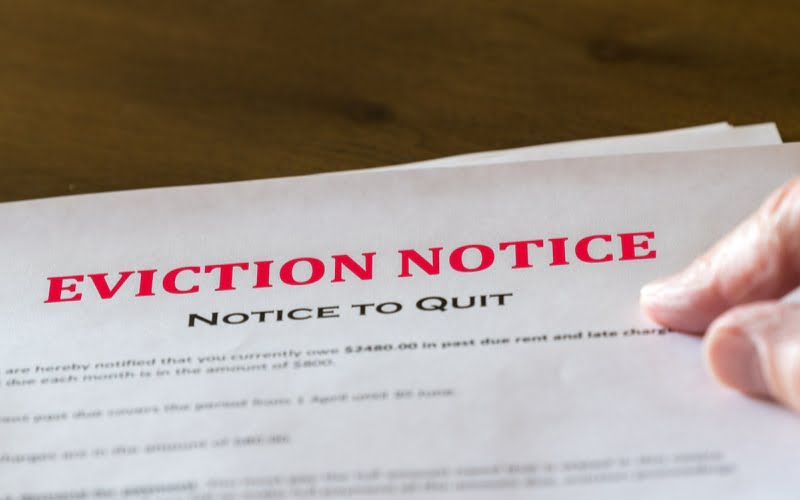Last Updated on March 18, 2024 by Kelvin Nielsen
Florida lease renewal laws are in place to protect both tenants and landlords. These laws govern the process of renewing a lease agreement in Florida and ensure that both parties are aware of their rights and obligations.
Tenants and landlords must be familiar with these laws to avoid any legal issues that may arise during the lease renewal process.

Under Florida law, lease agreements can be renewed either automatically or by mutual agreement between the tenant and landlord. Automatic renewals occur when the lease agreement specifies that it will renew for a certain period unless the tenant or landlord provides notice to terminate the lease.
On the other hand, mutual renewals occur when both parties agree to renew the lease for a specific period.
Related Posts:
- How to Sue Your Landlord in Florida
- Florida Air Conditioning Laws
- Landlord Rights in Florida
Lease Renewal Procedures
When a lease agreement is nearing its end, both the tenant and the landlord must follow specific procedures to renew the lease.
Notice Requirements
Under Florida law, the notice period for lease renewal depends on the type of lease agreement. For a month-to-month lease, either the tenant or the landlord must provide written notice at least 15 days before the end of the rental period. For a week-to-week lease, the notice period is seven days.
Tenant and Landlord Rights
Both the tenant and landlord have rights during the lease renewal process. The tenant has the right to receive written notice of the lease renewal terms, including any changes to the lease agreement.
The landlord has the right to terminate the lease if the tenant fails to comply with the lease agreement or if the landlord decides not to renew the lease.
Lease Modification and Negotiation
During the lease renewal process, the tenant and landlord may negotiate changes to the lease agreement, such as rent increases or lease duration. If both parties agree to the changes, they must be documented in writing and signed by both parties.
Legal Implications of Non-Renewal
If the landlord decides not to renew the lease, they must provide written notice to the tenant before the lease ends.
If the tenant remains in the rental unit after the lease has ended without the landlord’s permission, the tenant will be considered a holdover tenant and may be subject to eviction.
Related Posts:
Rights and Responsibilities After Lease Expiration
Continuing Tenancy and Holdover
If a tenant continues to occupy the premises after the lease has expired, the landlord may choose to either accept rent and create a new tenancy or file for eviction. The tenant should vacate the premises promptly to avoid any legal action.
Property Maintenance and Damage Claims
The landlord has the right to inspect the premises for damages and cleanliness. If any damage is found, the landlord may claim the cost of repairs from the tenant’s security deposit. The tenant is responsible for maintaining the premises in a clean and sanitary condition.
Security Deposit Return and Claims
Within 15 days of the lease expiration, the landlord must return the security deposit or provide a written notice of any claims against it. The tenant has the right to dispute any claims made by the landlord.
Frequently Asked Questions

What is the required notice period for a landlord to provide if they choose not to renew a lease in Florida?
In Florida, a landlord is not required to provide notice if they choose not to renew a lease. However, if the lease specifies a notice period, the landlord must provide notice according to the terms of the lease.
Is a landlord obligated to provide a reason for lease non-renewal in Florida?
No, a landlord is not required to provide a reason for non-renewal of a lease in Florida. However, it is recommended that landlords provide a reason to avoid potential legal disputes.
What are the legal consequences if a lease expires and is not renewed in Florida?
If a lease expires and is not renewed in Florida, the tenant must vacate the property. Failure to do so may result in an eviction proceeding. The landlord may also be able to pursue legal action to recover any unpaid rent or damages.
What actions are prohibited for landlords in Florida with regard to lease renewal and tenant treatment?
Landlords in Florida are prohibited from discriminating against tenants based on race, color, national origin, sex, disability, familial status, or religion. They are also prohibited from retaliating against tenants who exercise their legal rights, such as complaining about unsafe living conditions or reporting code violations.
Disclosure: The content herein isn’t a substitute for advice from a professional attorney. It’s only meant to serve educational purposes. If you have a specific question, kindly seek expert attorney services.
Sources: FL Statutes Chapter 83 Part II, Florida Renters Rights Guide

Amanda Rose is a seasoned landlord with 13+ years of expertise in overseeing diverse properties. Her adept management spans single and family homes, along with multi-family apartments and condos, across Wyoming and South Dakota. Her commitment and proficiency have cemented her status as a thriving property management professional.
She is a member of the following organizations: Wyoming Landlord’s Association, National Association of Residential Property Managers (NARPM), Wyoming Apartment Association, South Dakota Multi-Housing Association (SDMHA), and South Dakota Landlord Association (SDLA).






